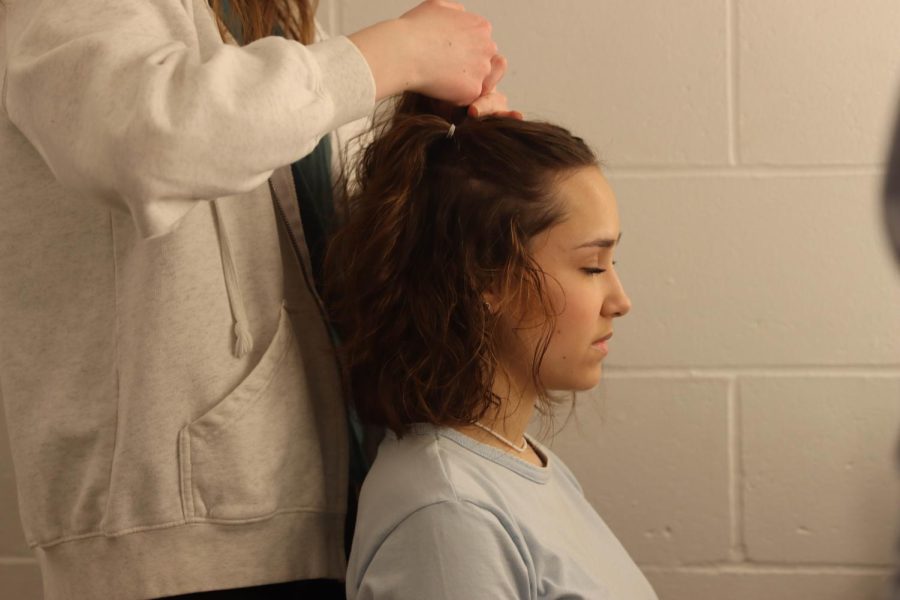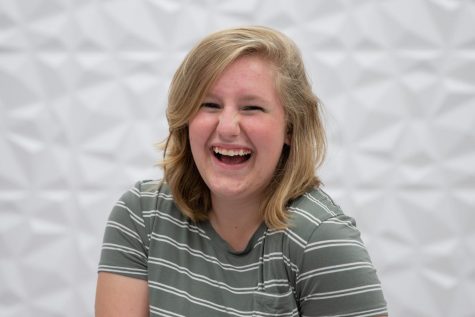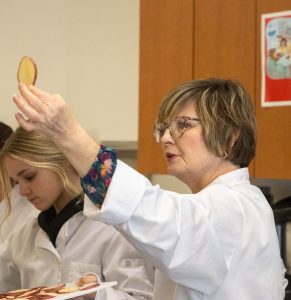Dealing With Post Show Depression
A sensation almost every performer experiences
Morgan Feinstein (11) has her hair done by Brynn Bartram (12). Morgan Feinstein says that she is always trying to keep busy with shows, being that theatre is her passion. “I didn’t skip a beat jumping to new things,” Feinstein said.
April 6, 2022
After the momentous three performances of the hit musical “Mamma Mia!“, performers are left on the last night cleaning up the amazing show they just put on. The weeks following the show often leave students in a bout of dismay wishing to go back to the times of performance. This phenomenon is referred to by performers as “Post Show Depression (PSD).”
Mrs. Gehrke, the director of “Mamma Mia!” gave a loose definition, saying: “Post-show depression is the feeling of let down that occurs after something you have been working towards for so long is suddenly done.”
She, alongside her students, have worked for months on this show and the result was amazing. And after the third night, everything goes back to seemingly normal life, with with the stage being striked and cleaned up.
Ashley Haberberger, a senior who serves on the backstage crew, talked about putting in the work for her last show of the year. She personally didn’t experience the emotional expense of PSD; she explains more of a bittersweet feeling.
“The weeks leading up to the show got increasingly more stressful, so it was nice to just sit back and watch everyone’s hard work pay off,” Haberberger said.
The end of the show, especially for seniors, is followed by lots of tears after senior speeches are given and pictures are taken on the last night of the show.
Gehrke attests to the tears aspect of the show when she talks about her young daughter Greta, being involved in the show, playing a young Sophie, in the song “Slipping Through my Fingers.”
“Greta played a small role in this show, and she has already had many moments of sadness and crying where she says she just wants to do the show one more time, so it is something everyone feels,” Gehrke said.
When sharing that anecdote with many theater kids, they all reacted with such endearing smiles, saying that was one of the cutest, most relatable things ever.
Junior Anna Wright, who played the main character Sophie, explained how PSD isn’t a foreign feeling to her, but tends to happen later than what people would expect.
“I personally don’t experience post-show depression too much until months after shows mostly because I do tend to keep myself busy with whatever’s coming next,” Wright said. “If anything, I’m sad that I don’t get to mess around with my favorite people after school every day.”
Ending everything on a happy note is important in theatre, and sophomore Madeline Claravall can attest to that.
“Performing with the cast was incredible. Some of my best friends came from the cast, and I’m blessed to share what I do with them,” shared Claravall.














